Thousands of UK ambulance workers join nurses in strike over pay
Thousands of ambulance workers across England, Wales, and Northern Ireland have been on strike over pay, a day after nurses walked out and as the army has been put on standby to help drive and direct emergency vehicles.
NHS ambulance staff, including paramedics, call-handlers ,and technicians across England, Wales, and Northern Ireland began a one-day strike on Wednesday, expressing frustration over long shifts and waits to hand patients over to hospitals, as well as the ongoing dispute over pay.
Three ambulance unions are striking for either 12 or 24 hours. They have pledged to respond to life-threatening calls, but officials said they could not guarantee everyone who needed an ambulance would get one.
Hospital chiefs praised the public for heeding NHS advice to avoid risky activity in case of being left helpless and unable to reach the accident and emergency department, and to only call 999 for life threatening emergencies.
The government also advised people not to play contact sports or take unnecessary car trips in order to reduce their risk of needing an ambulance.
The strike would result in fewer ambulances on the road, with only the most urgent life-threatening cases such as heart attacks prioritized, officials said.
“The system will be under very severe pressure today,” Health Secretary Steve Barclay told Sky News. “We’re saying to the public to exercise their common sense in terms of what activities they do, being mindful of those pressures that are on the system.”
Barclay enraged union leaders and healthcare workers by accusing them of making a “conscious decision” to “inflict harm” on patients. “We’ve already started the pay process for next year, for next April, and that’s where the discussion should be held,” Barclay told LBC Radio.
Christina McAnea, the Unison general secretary, said that if there were any deaths during the strike, it would “absolutely” be the fault of the government.
The third union, the GMB, has said pay in the health service has fallen 17% in real terms since 2010, while demand for ambulances has risen 77% in the same period.
NHS staff have been offered a pay raise of at least £1,400 each, equivalent to about 4% on average for nurses, but are pushing for a raise that they say keeps pace with the double-digit UK inflation, running at 10.7 percent in November.
Prime Minister Rishi Sunak’s Conservative administration, which has been in office for less than two months, argues that double-digit public sector raises would drive inflation even higher. So far, the government has even refused to discuss pay with NHS workers.
The UK’s most intense strike wave for decades is a response to an inflation running at 40-year highs and a cost-of-living crisis driven by soaring food and energy prices in the wake of the COVID-19 pandemic and the Russia-Ukraine war.
As a result of the industrial action, people across the UK face postponed hospital appointments, cancelled trains, and travel delays during the winter holiday season. But opinion polls have suggested a high level of support for the workers.
The army has been put on standby to help drive and direct emergency vehicles, but soldiers will not have all the powers that ambulance staffs have to respond or provide clinical care.
Ambulance crews are due to strike again on December 28. Railway staff, passport officers, and postal workers are also planning walkouts over the Christmas holiday season.
World has ‘embarrassingly failed to stop Israel amid incessant US support’: FM
Iran-Egypt ties poised for revival as first Iranian president visits Cairo in 11 years
Iran’s cenbank says inflation down to lowest in 4 years
Iran rejects Canada-sponsored UNGA resolution as baseless, political
US disregards Spain’s arms embargo on shipments destined for Israel
Palestinian detainees on hunger strike to protest Israeli repression
US sanctions 3 individuals, 4 entities over links to Iranian military
VIDEO | Press TV's news headlines








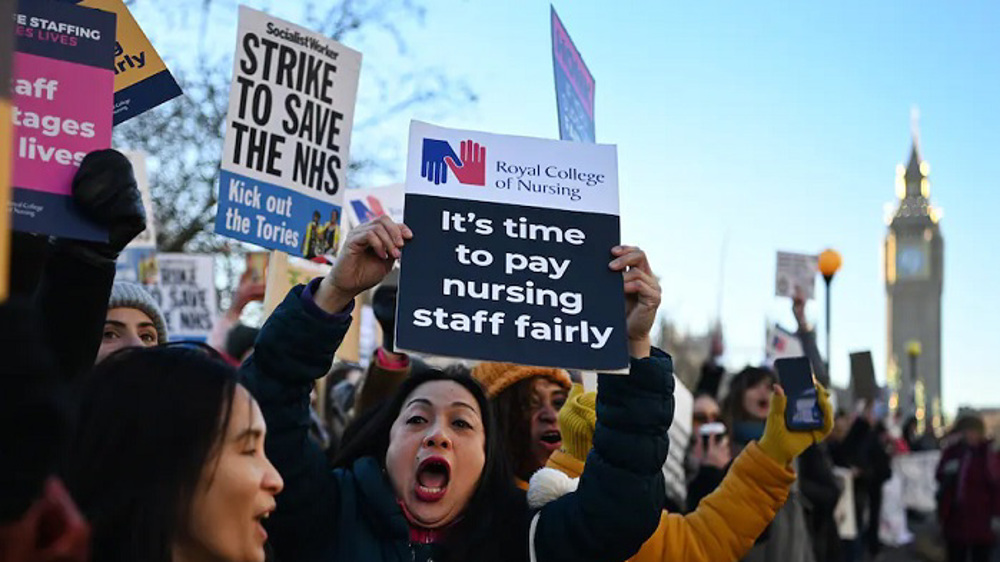
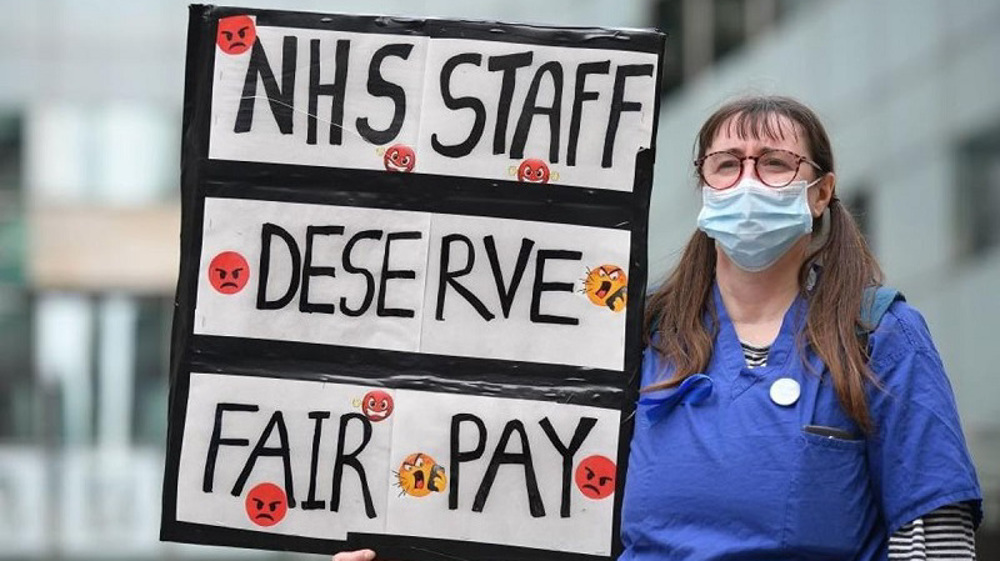
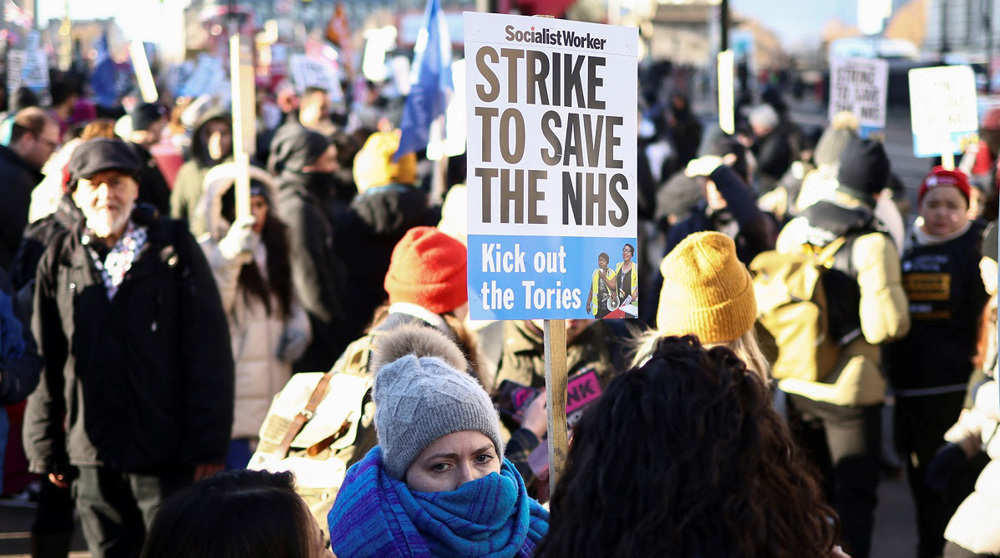
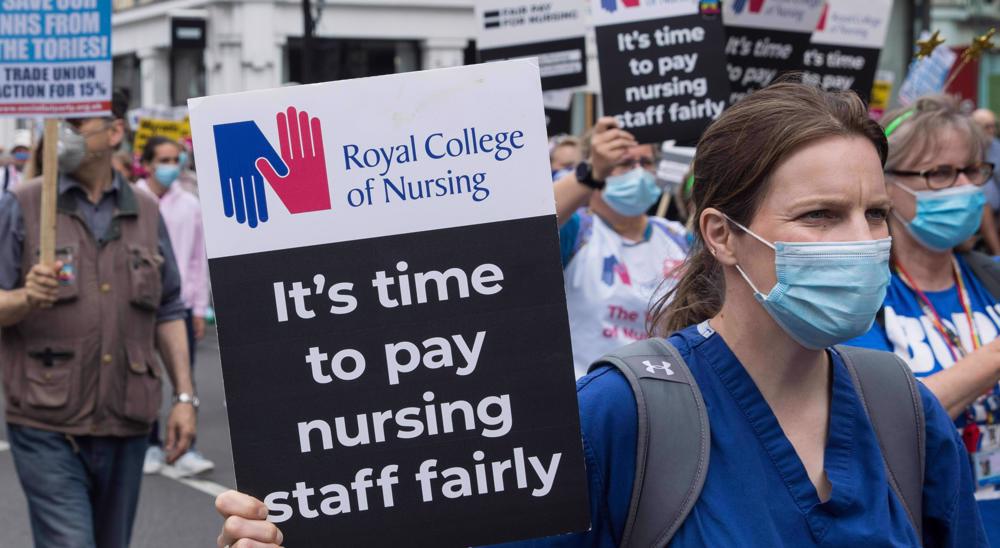
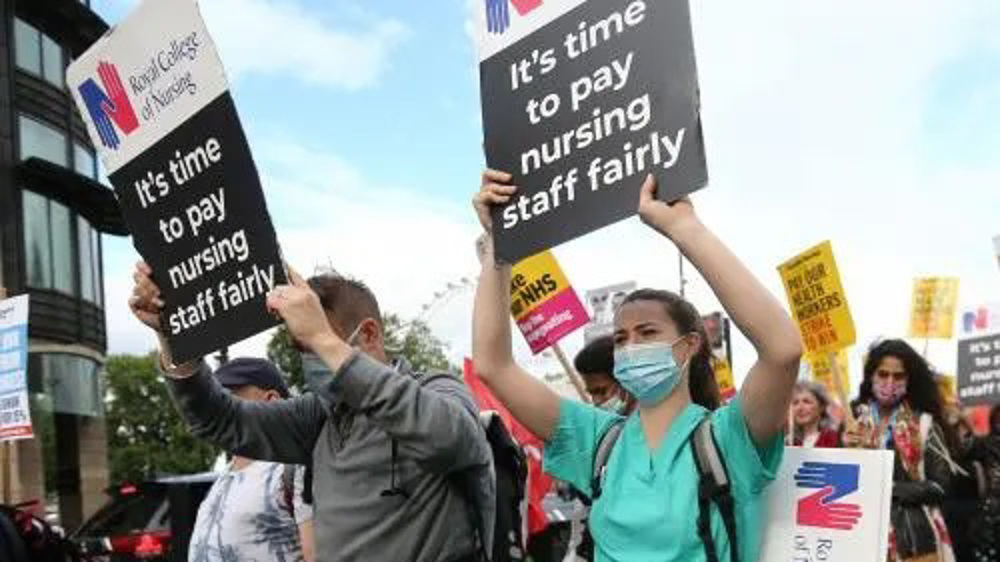

 This makes it easy to access the Press TV website
This makes it easy to access the Press TV website